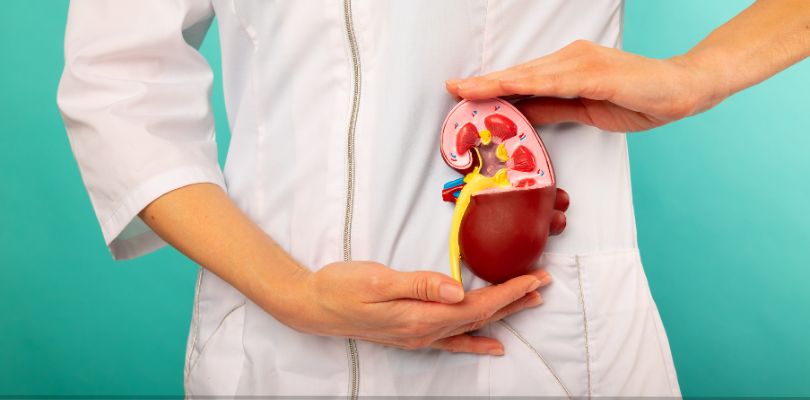What to Watch For, What to Skip and How to Heal
Many advancements in treating kidney cancer have been made in recent years, which is good news for patients. Medicines like Inlyta (Axitinib) can be used to treat kidney cancer; it works by blocking the growth of blood vessels that tumors need to grow. In this article we'll look at diet tips for patients, signs of kidney cancer and more treatment options to consider.
Drinks to Avoid with Kidney Cancer
Experts advise being cautious with how much liquid you drink if you have kidney cancer, as drinking excess fluids can put a strain on your kidneys. Here are some drinks you should limit or avoid if you have kidney cancer:
1. Alcohol
Alcohol can weaken the immune system, making it harder for the body to fight cancer.
Alcohol can also interact negatively with chemotherapy and other medications, reducing their effectiveness and increasing side effects. Some studies show that alcohol can contribute to inflammation, which might exacerbate cancer symptoms.
2. Caffeine
Caffeine can cause dehydration and increase blood pressure, which can strain the kidneys.
3. Soda
High sugar content can lead to weight gain and increase the risk of diabetes, which can further stress the kidneys.
4. Energy Drinks
Energy drinks often contain high levels of caffeine and sugar, both of which can have adverse effects on cancer patients.
What medications cause overactive bladder? There are four main types that can cause symptoms. Learn more here.
Signs of Kidney Cancer
Most common symptoms of kidney cancer:
- Blood in the urine can cause the urine to appear rusty or deep red.
- A lump or mass on the side or lower back.
- Unexplained fever for a few weeks.
- Unexplained weight loss.
- Lingering dull ache or pain in the side, abdomen or lower back.
- Feeling fatigued or in poor health.
- Swelling of ankles and legs.
Due to the location of the kidneys, many kidney cancer symptoms don't show until the tumor has grown quite large. Symptoms of kidney cancer also tend to differ from person to person. Pay attention to your body to know what feels normal and what doesn’t.
It is important to note that these symptoms do not always mean you have kidney cancer, especially if any of them exist on their own. However, these symptoms happening concurrently can be a sign of something nefarious and should be discussed with your doctor.
Treatment Options
1. Surgery
Partial Nephrectomy: This procedure involves removing only the tumor and a small margin of healthy tissue. It's typically used for smaller tumors or in cases where preserving kidney function is important.
Radical Nephrectomy: This surgery involves removing the entire kidney, along with some surrounding tissue and possibly nearby lymph nodes. It’s used for larger tumors or when the cancer has spread beyond the kidney.
2. Ablation and Local Therapies
Cryoablation: This technique uses extreme cold to freeze and kill cancer cells. It's often used for small tumors or for patients who cannot undergo surgery.
3. Targeted Therapy
These treatments target specific genes or proteins that are involved in the growth and survival of cancer cells.
4. Immunotherapy
Immunotherapy helps boost the body’s immune system to fight cancer. Checkpoint inhibitors, such as nivolumab and pembrolizumab, have shown promise in treating advanced kidney cancer.
5. Radiation Therapy
While not commonly used as the primary treatment for kidney cancer, radiation therapy can help relieve symptoms, such as pain, if the cancer has spread to other areas, such as the bones.
6. Chemotherapy
Chemotherapy is not typically very effective against kidney cancer and is rarely used. However, it may be considered in certain cases where other treatments have not been successful.
7. Medicines
Medicines such as Inlyta, or axitinib, can be used in treating kidney cancer. This medication works by blocking the growth of blood vessels that tumors need to grow. By doing this, Inlyta helps slow down or stop the spread of cancer cells in the body.
Read on to learn about the worst drinks for lung cancer.







